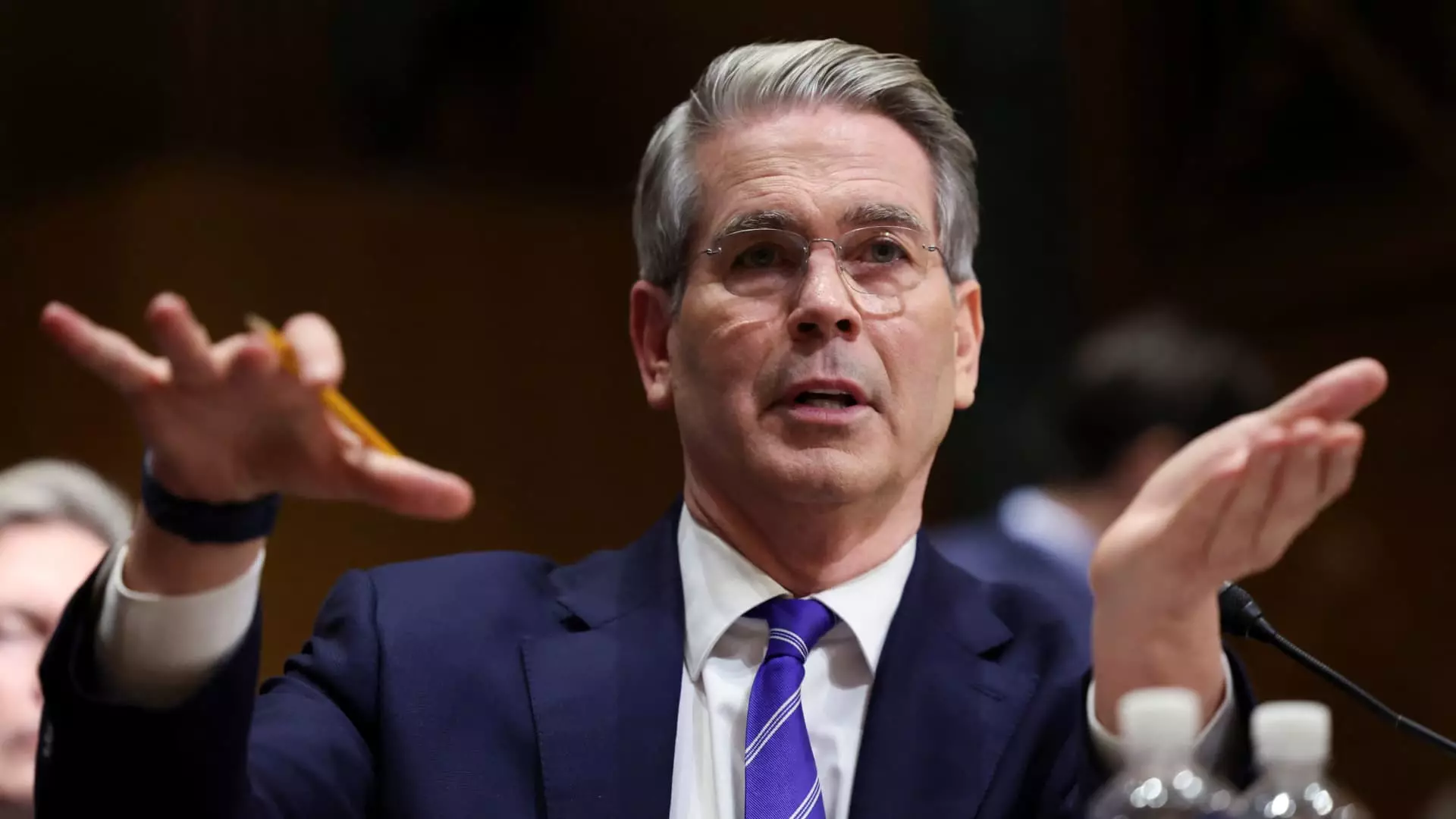In a climate where economic diplomacy is juxtaposed with aggressive posturing, U.S. Treasury Secretary Scott Bessent’s recent remarks reflect a simplistic interpretation of a deeply complex situation. He has positioned the United States as having a distinct advantage in the ongoing trade disputes with China, dismissing the Chinese response as a “big mistake.” However, this rhetoric may inadvertently undermine the nuanced realities of international trade and the risks of escalation.
Bessent’s assertion that “the Chinese escalation” comes from a hand of “playing with a pair of twos” is not only dismissive of China’s economic capabilities but also overlooks the strategic consequences of such a belittling stance. While it is true that the U.S. exports significantly less to China than it imports, this imbalance is not the sole measure of which country holds the superior hand in these negotiations. Such a view undermines the interconnectedness of global trade and the fact that economic repercussions of tariffs don’t occur in a vacuum.
Short-Sighted Economic Strategies
The real danger lies in the premise that punitive tariffs will magically revive American manufacturing and create sufficient domestic jobs. This line of thinking romanticizes a return to an industrialized past while ignoring the stark reality of automation and shifting labor markets. Bessent noted that the purpose of tariffs is to bring trading partners, including Japan and several large countries with trade deficits, to the negotiating table—a noble aim, but one that echoes a bygone era of protectionism.
Moreover, the administration’s reliance on tariffs assumes that countries will comply with U.S. demands rather than retaliate. China, with its ambitious Belt and Road Initiative and a burgeoning presence in global supply chains, is not merely a passive player. It has demonstrated a willingness to respond decisively, stating its commitment to “fight to the end.” The reality of this trade war may be a battle of attrition rather than a straightforward negotiation where the U.S. comes out ahead.
Illusions of Revenue and Job Creation
In discussing the potential revenue from tariffs, Bessent’s vision resembles a mirage rather than feasible economic policy. He admits that tariffs represent a “melting ice cube,” suggesting that as domestic manufacturing picks up, the need for tariffs will wane. This perspective fails to acknowledge the potential backlash from consumers facing increased prices—and businesses that may struggle under a heavy tariff regime—driving them to seek alternatives outside the U.S.
It’s crucial to understand that job creation does not happen in a vacuum. The jobs that may be brought back to the U.S. must be sustainable and relevant to the new economic landscape dominated by technology. Bessent’s optimistic projections seem blissfully ignorant of the fact that many manufacturing jobs are unlikely to return, simply because the corporate drive for efficiency makes them anachronistic.
The Illusion of Control in a Global Economy
Bessent’s comments underscore a common misconception: that the U.S. can manipulate global trade dynamics through a series of tariffs and restrictions. The complexities of the global economy mean that unilateral measures often lead to retaliatory actions that escalate tensions rather than resolve them. The reference to non-tariff barriers, such as currency manipulation and hidden taxes, exposes a fundamental truth: these barriers are insidious. They are often much harder to identify and tackle, reflecting the multilayered nature of international economics.
While the administration aims to take a comprehensive approach to what constitutes unfair trading practices, this ambition is complicated by the fundamental realities of trade interdependence. Other countries are unlikely to crumble under the pressure of tariffs—rather, they will innovate and adapt, potentially solidifying their own trade positions at the expense of America’s market share.
Bessent’s proclamations about the trade war are fraught with oversimplification and an underestimation of the global landscape. Emphasizing a combative approach to trade will lead to unintended ramifications for American businesses and consumers, overshadowing the actual potential for mutually beneficial agreements in a collaborative global environment.


Leave a Reply